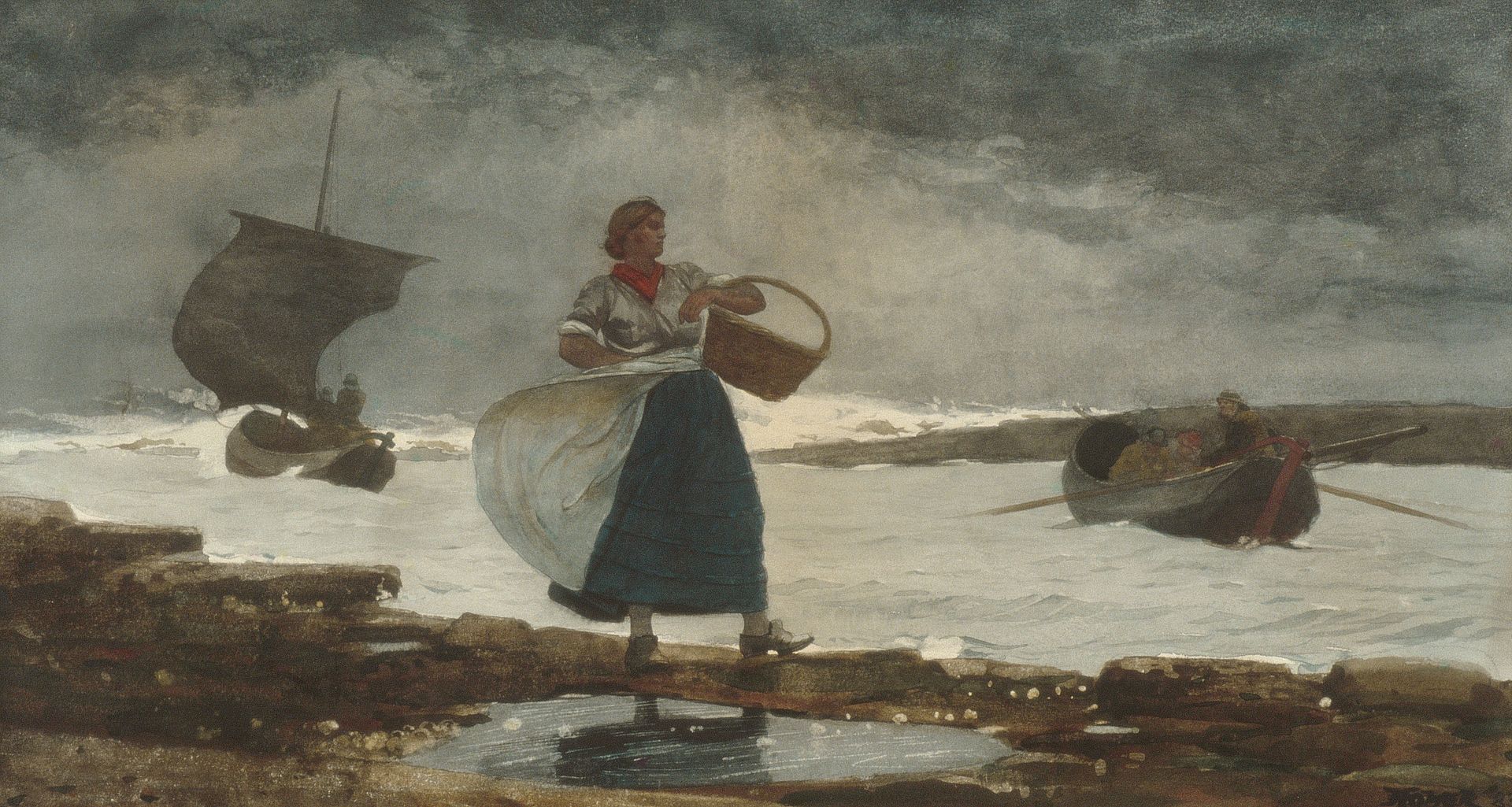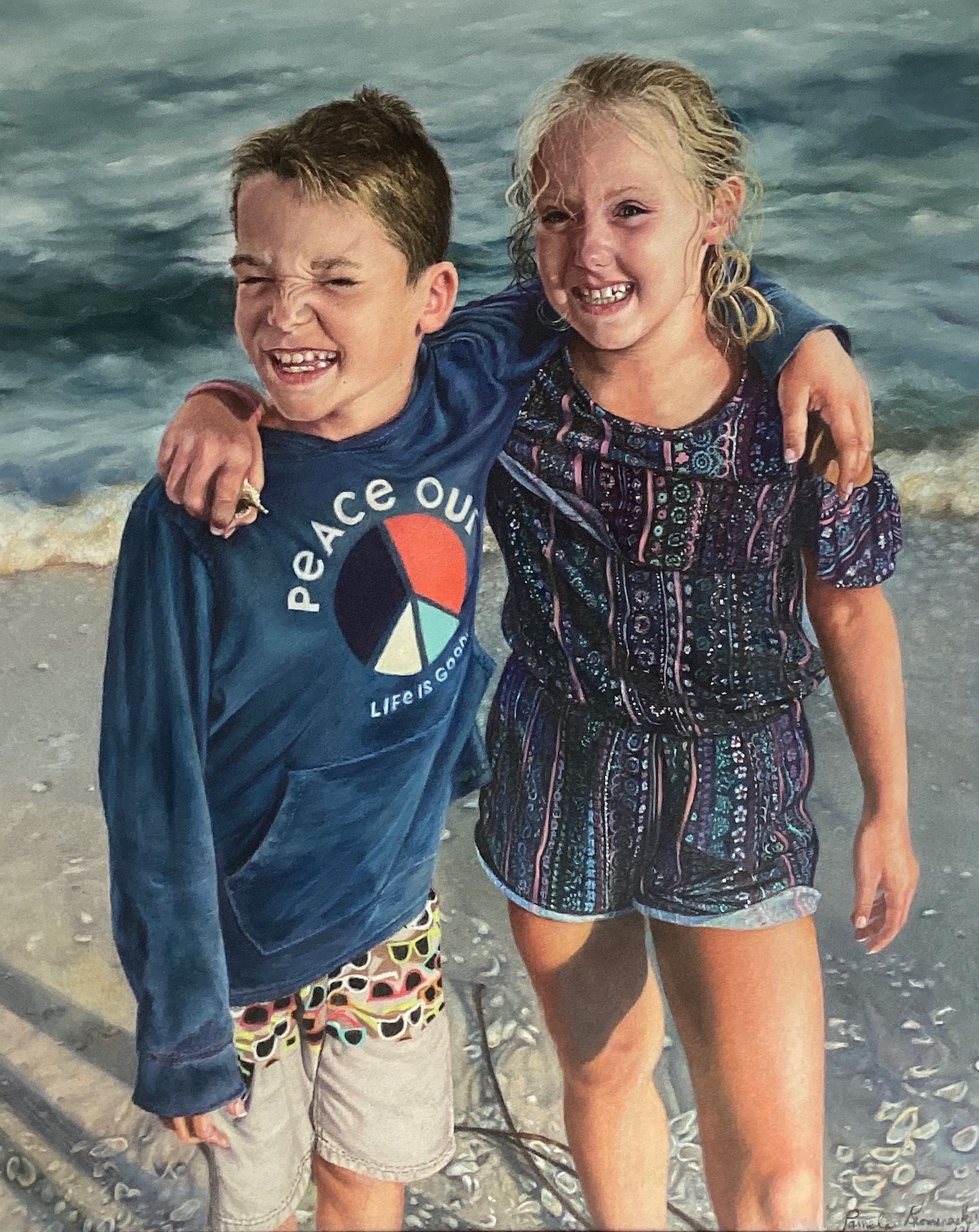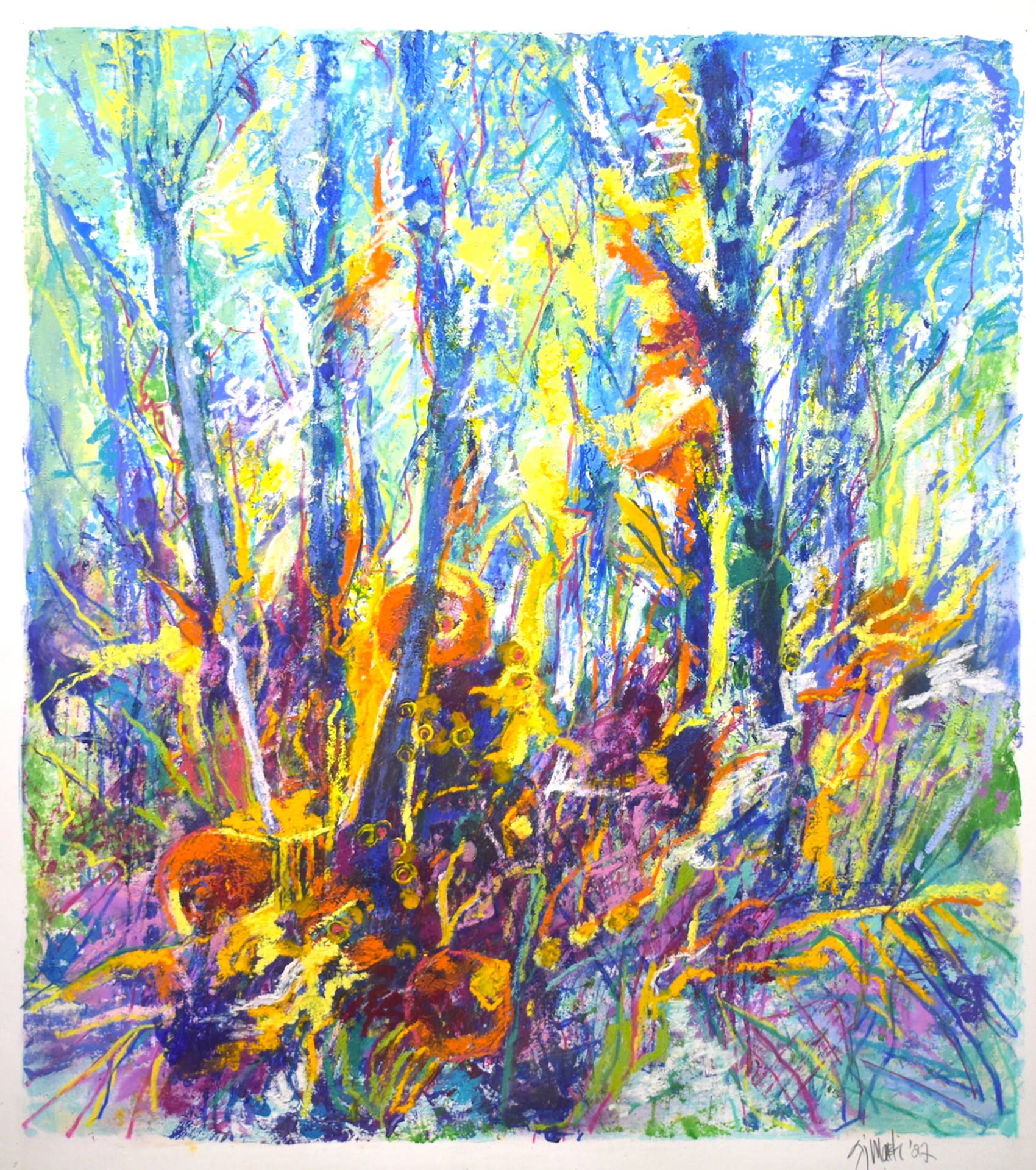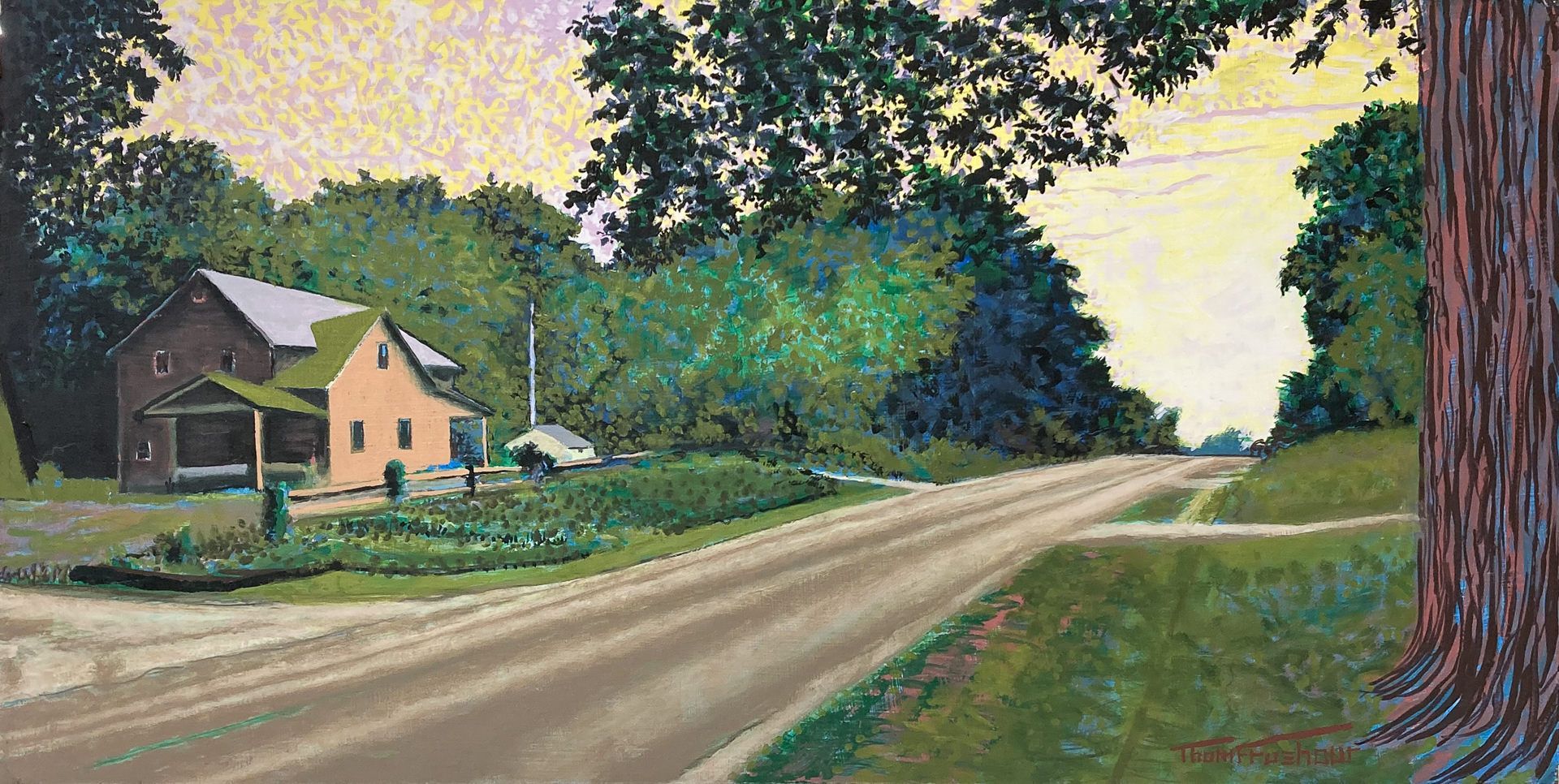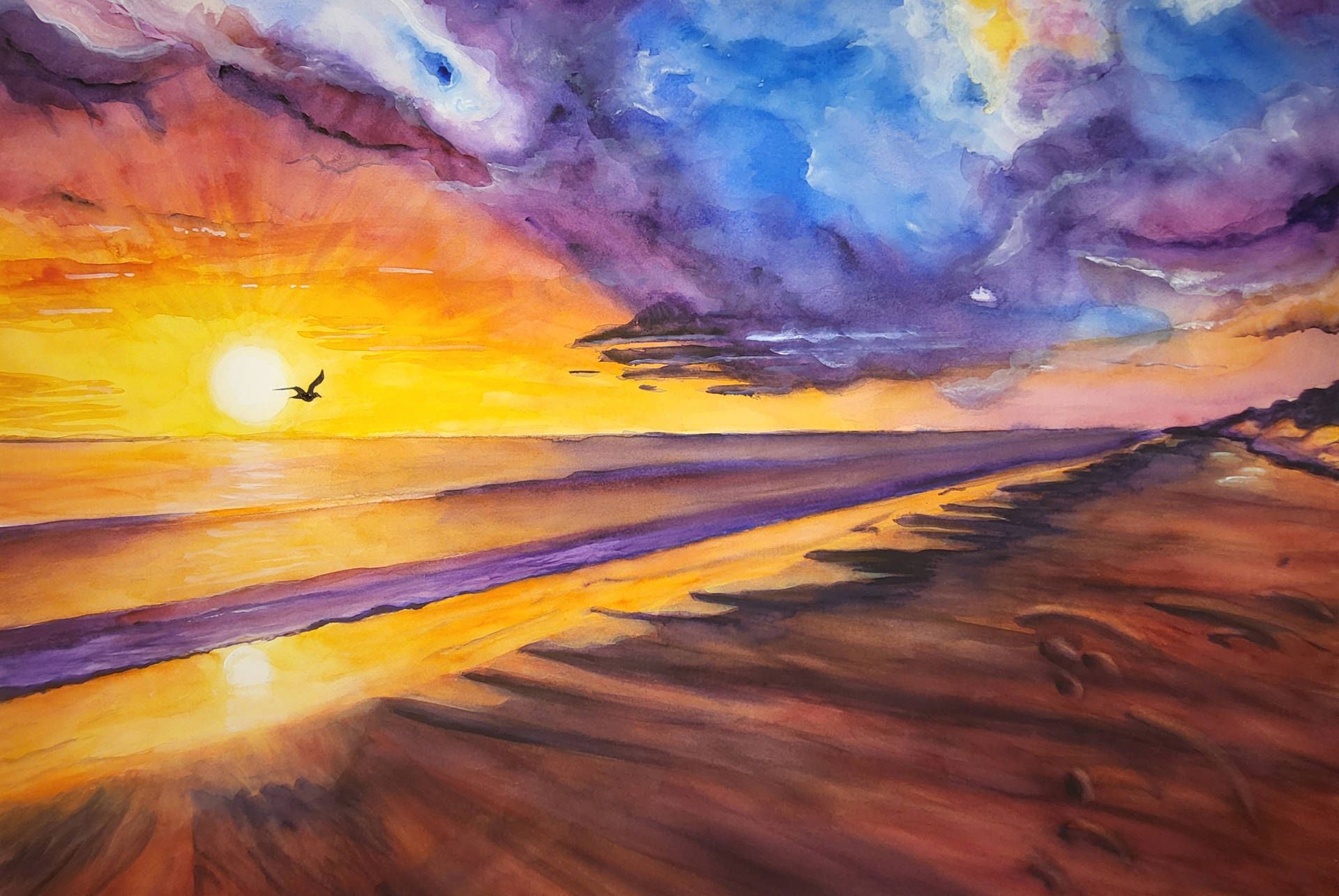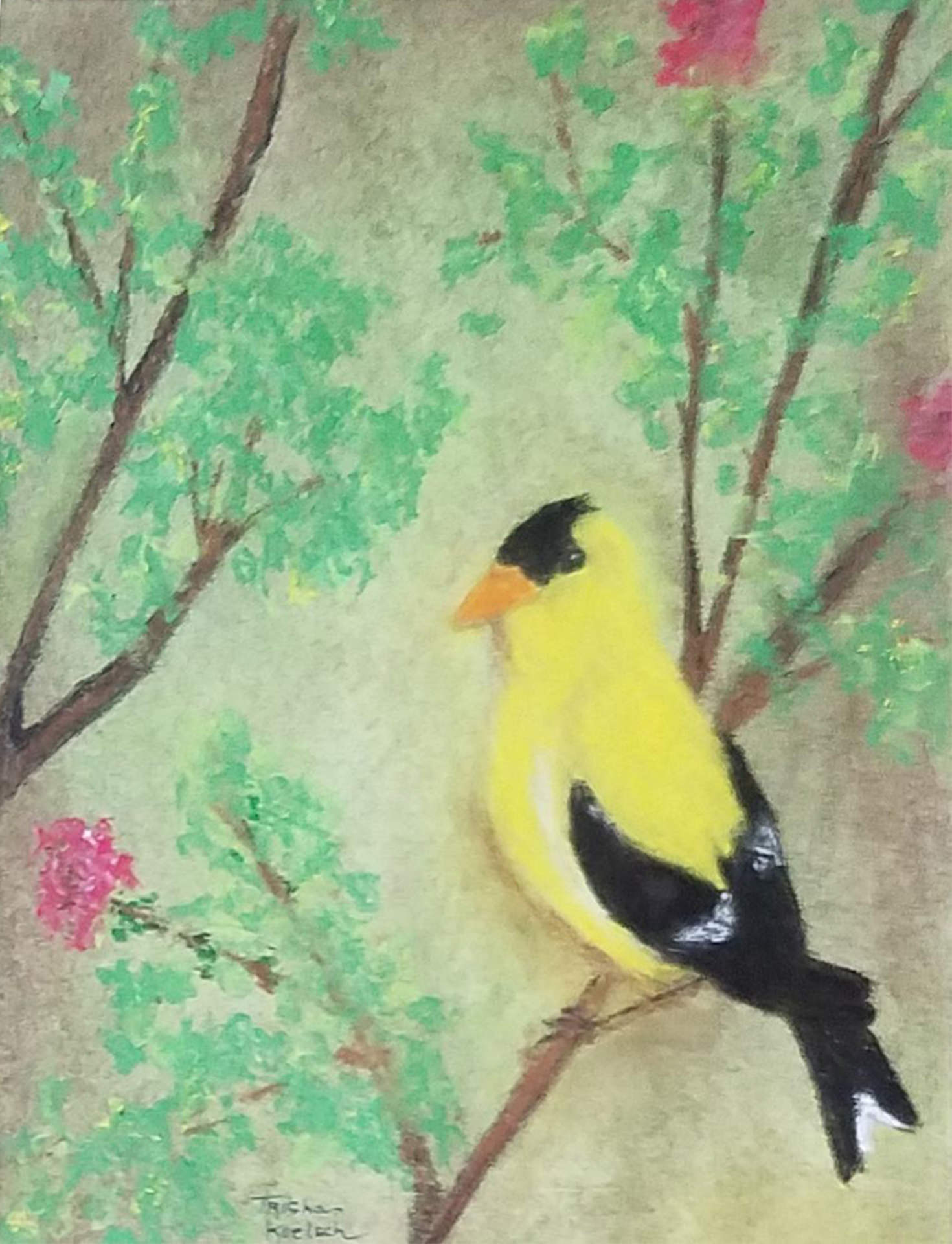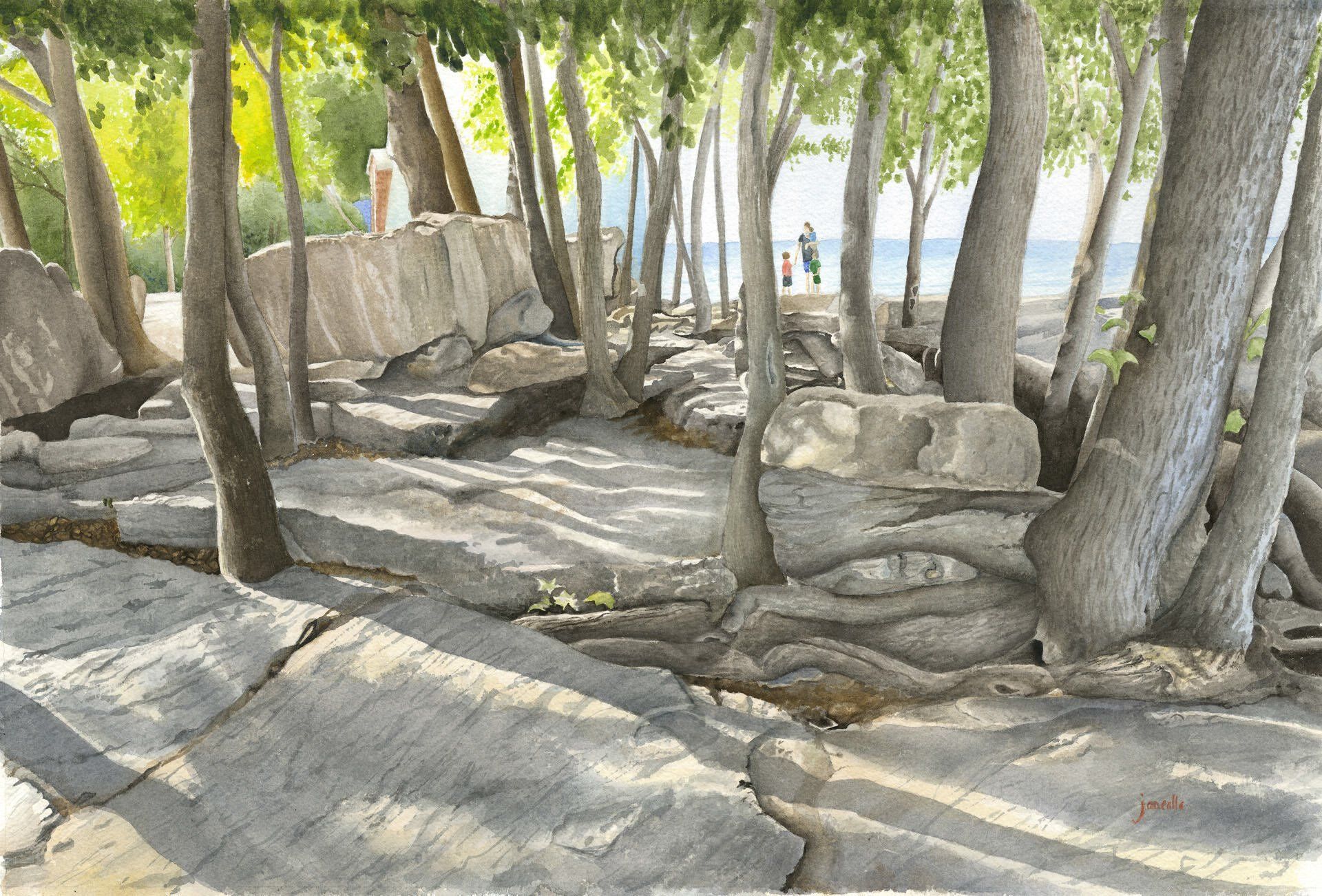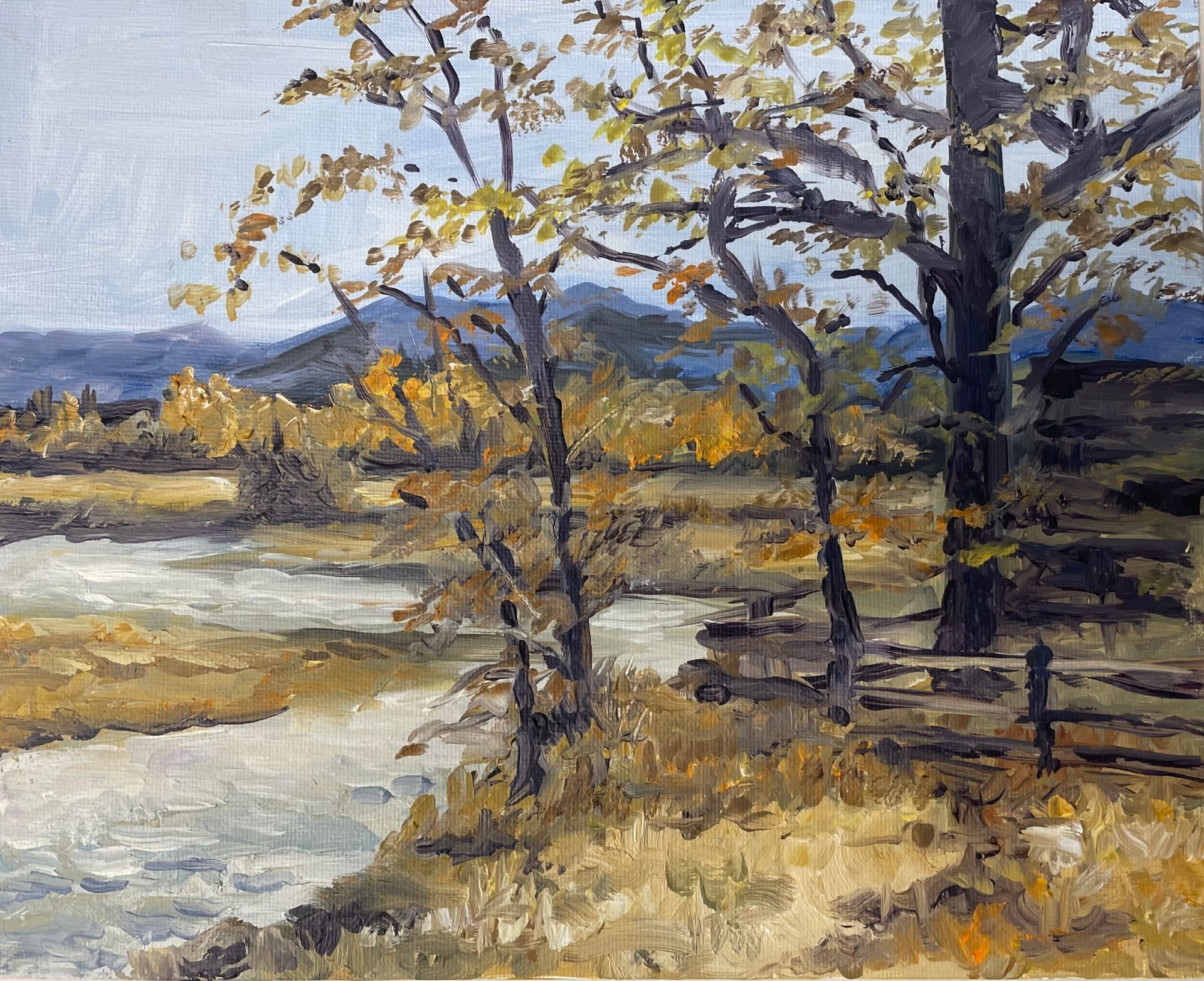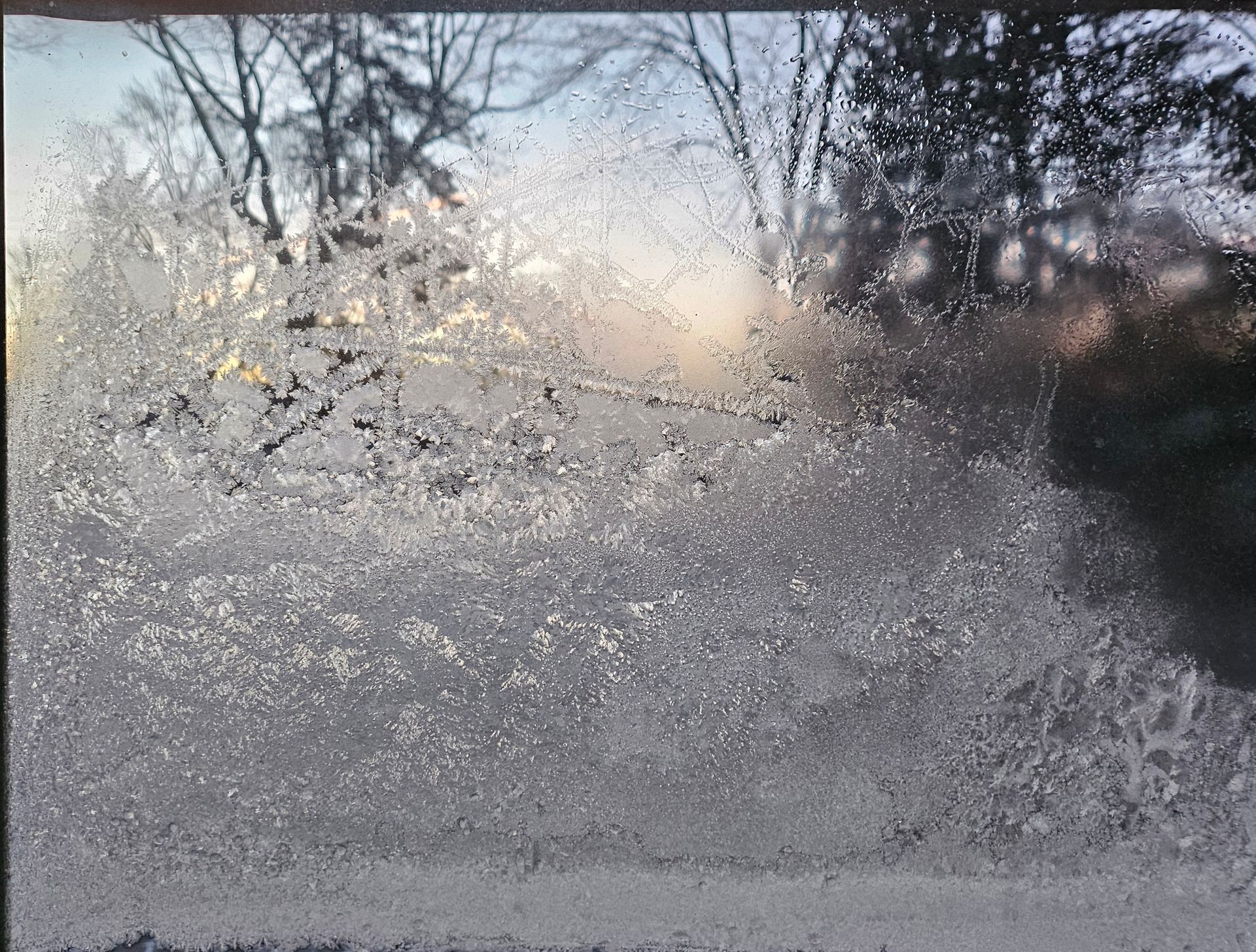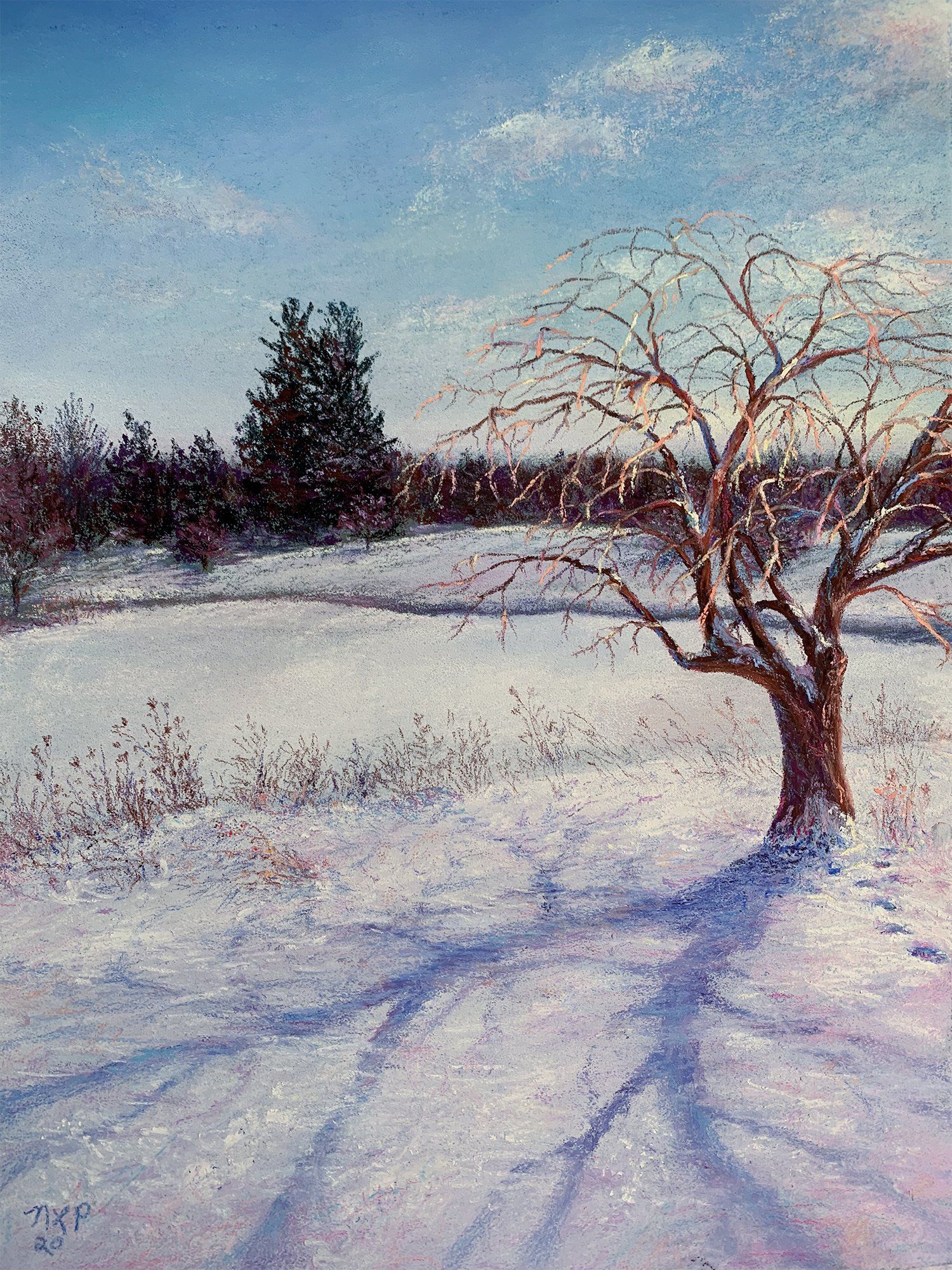January 2023 News and Notes
Happy New Year
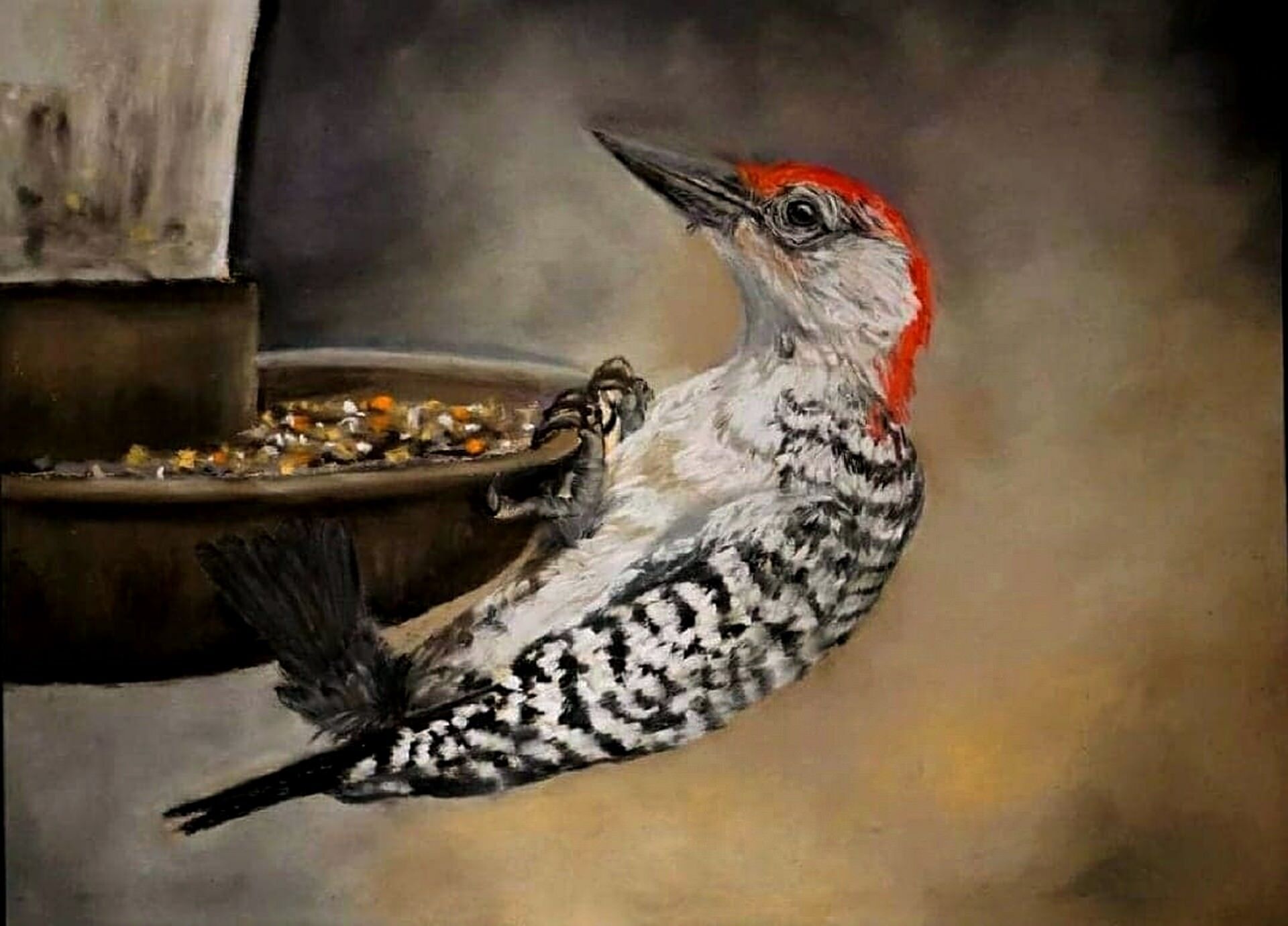
Patricia Wilt, "Hangin' in There". Soft Pastel
Our red headed friend is a reminder of the arrival of spring on March 20, called the spring equinox. Astronomically, in the Northern Hemisphere the spring equinox (also called the March equinox or vernal equinox across the globe) occurs when the Sun crosses the celestial equator going south to north. It’s called the “celestial” equator because it’s an imaginary line in the sky above the Earth’s equator. Imagine standing on the equator; the Sun would pass directly overhead on its way north.
After the spring equinox, the Northern Hemisphere begins to tilt more toward the Sun, resulting in an increasing number of daylight hours, with earlier dawns and later sunsets.
We can look forward to the arrival of milder temperatures and longer days for painting outdoors. Meanwhile, come paint indoors with the Monday Morning Painters, the Thursday Morning Painters and the Hyter Portrait Group. Find more information about these groups here.
OPPORTUNITIES FOR ARTISTS
Winslow Homer's Methods
Watercolors by Winslow Homer, Metropolitan Museum of Art
From the Smithsonian Magazine, May 2008:
"The frugal Winslow Homer was at his most parsimonious with words—especially when asked to reveal his aesthetic ideas or his methods of working. "I think it would probably kill me to have such a thing appear," he told a friendly writer who proposed a biography. The artist doggedly rebuffed all such overtures, left only a thin trail of correspondence and remained resolutely tight-lipped, particularly about his artistic views.
But his more than 700 watercolors provide scattered biographical and artistic clues. In the most recent investigation into his methods, mounted by the Art Institute of Chicago, a meticulous study focused on 25 watercolors. You can read more about this study here.
Greater Port Clinton Area Arts Council
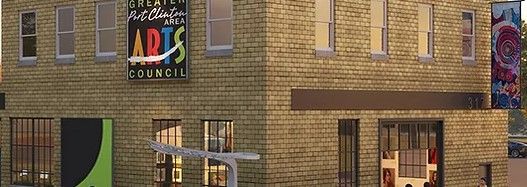
The Greater Port Clinton Area Arts Council is proud to announce another series of classes coming to The Arts Garage this winter – "Landscape in Oil." Led by TAG resident artist Rick Dziak, Landscape in Oil will cover composition, color mixing, values and the direct approach to oil painting "wet into wet." The cost for all four classes is $175 per person or $150 for GPCAAC members and all take place at The Arts Garage. Find more information here.
Safe disposal of oil soaked rags
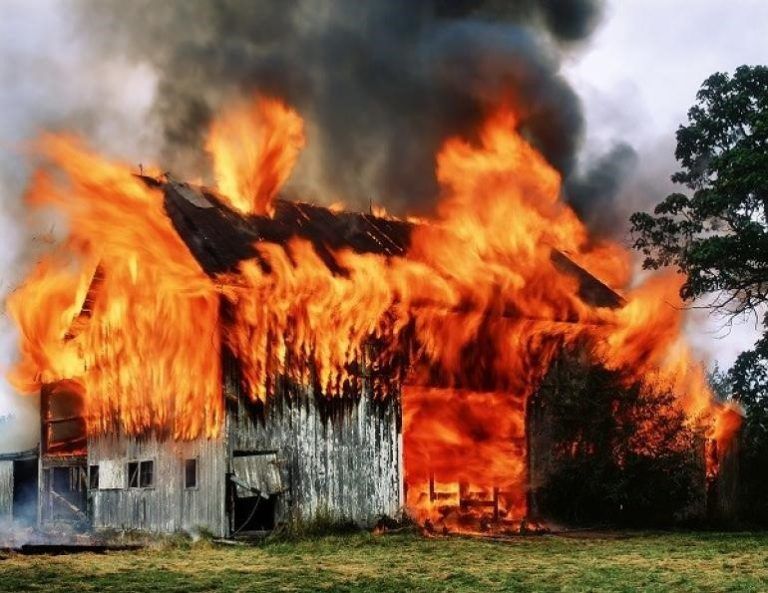
Most barn fires nowadays are caused by faults in electrical wiring or careless disposal of cigarettes. However, oil soaked rags improperly stored can spontaneously combust due to reaction of the oil with oxygen from the air, which generates heat. Historically this was a common cause of barn fires. For the artist, care in dealing with oil soaked rags will prevent any problems. Gamblin paint company has provided information about how to deal with rags used when cleaning up after oil painting.




